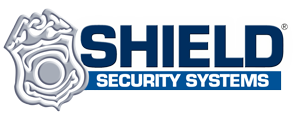Experiencing a little anxiety before making a structured sales presentation is a normal feeling, even for experienced sales representatives. In all types of sales, hearing the word, “no,” or the phrase, “I’ll think about it,” becomes a common occurrence that some sales personnel go through regularly.
In this post, we discuss sales tips for one specific area, security sales, that should help you to close more sales and hear the word, “YES!” more often.
5 Security Industry Tips for 2015
1) Have a Confident First Approach
In order to shore up your confidence when meeting your prospects in person, you can become skilled at an approach called the kitchen table methodology. This approach brings you and the prospect together to a place where both feel very comfortable, a “kitchen table” or similar setting.
With a goal of leaving the meeting with a signed contract, this approach puts you in control of the interaction and gives you the best vantage point to easily read the expressions of those involved, so you can respond properly. If your meeting takes place over the phone, create a comfort zone by building rapport similar to that of two people in a kitchen table environment.
2) Be Quick and to the Point
With about two minutes or less to present your initial “elevator pitch,” you ought to memorize and internalize it fully. The 120 seconds are the difference between piquing the interest of your prospect and a lost opportunity. The pitch will be your chance to secure the potential customer in order to get more information during a later sales call or in a casual meeting, such as a security industry seminar.
3) Qualify the Security System
Your first and most important goal is to educate the customer about the product or service you’re selling. Therefore, it’s critical that you understand all the benefits of the product or system and that you prepare yourself properly. The education process should also continue long after closing the security sale, helping to maintain higher customer satisfaction and retention.
Observing the ESA code of security ethics as you lead a prospect toward a purchasing decision is important to maintaining your credibility — not only for that one sale, but throughout your career. Part of this code includes 1) being honest and transparent about the benefits and limitations of your offerings and 2) ensuring that you take time to learn the customer’s true needs and desires before pitching just any product.
4) Qualify the Customer
Once you have qualified the right security system for the potential customer, then you should move to qualifying the customer. At this stage, you must be able to identify the ability of the customer to pay for installation and an ongoing service agreement.
Integrating the need for the security system and suggesting the value or cost of investing in the security system will help determine and overcome any monetary objection. Explain everything (in person and in writing) and use proper sales forms to document and protect you and client
5) Teach your Team of Sales Representatives
When teaching your employees and team members about getting it right in the initial process, be sure to make emphasis on the introduction. Make certain that everyone in your team of sales representatives have memorized the focal points of the sales presentation pitch and all reps are presenting consistent information.
Even though, each member of your team should develop personal sales skills, they should all be consistent about the main points. In fact, every member should be able to deliver the 120 seconds of your general pitch with a machine-like uniformity.
All sales reps should be capable and comfortable using persuasive, yet ethical, techniques for overcoming objections and answering all questions a prospect may have.
Educate, Engage and Sell!
Clarity of purpose is any sales representative’s power when explaining the benefits of the security systems that your company offers. Briefly explain what you offer and engage with the customer to fully address his/her unique security needs. This way, you can close security sales legitimately and quickly, without spending time and energy on the wrong prospects or the wrong products.
What other sales techniques have worked for you in security sales or other service industries? Share your ideas in the comments section below — and learn more about improving your business model in our free e-book below.

